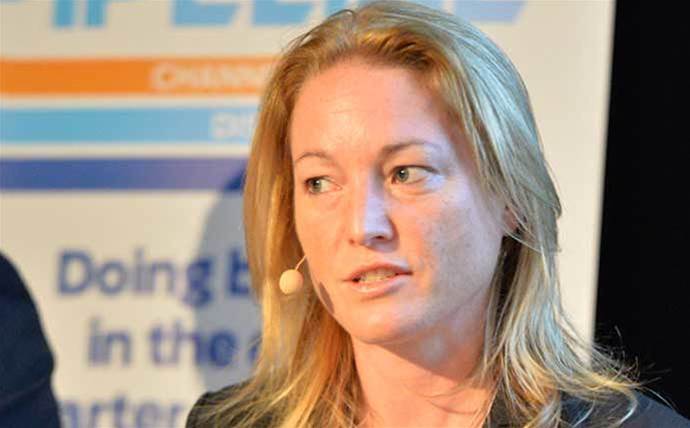James Spenceley has headed up some of the biggest deals in the ICT sector over the past decade. He founded Vocus Communications in Perth in 2007, and later listed it on the ASX. In 2015, Vocus merged with another Perth-based telco, Amcom, giving the combined company a market capitalisation of over $1 billion. In 2016, Vocus merged with the M2 Group, before Spenceley resigned later in the year. He now has a new funds management business, MHOR Asset Management.
Spenceley’s advice for businesses looking to sell was to get to know your would-be purchaser. He recommended looking at public documents, such as media releases, to better understand potential buyers and what they are prepared to pay. “With an ASX-listed company, you can go back and see ten or 20 years of records, and see almost every deal they’ve done,” he said.
“We’ve done deals where we were buying pretty much the same assets – a data centre over here and one over there – and we were paying five times [the earnings] for one and four times for the other. They were both exactly the same quality of asset; one just didn’t do the research and notice that we had bought the other for more. If one had come back and said, ‘You’ve paid five times for the other guy,’ he would have had a good case to get us up and we probably would have paid it.”
Peter Dunne is a private equity lawyer with Herbert Smith Freehills, who specialises in M&A and private capital raisings. He lucked onto one of the most high-profile tech operations to come out of Australia when he worked with Atlassian. Dunne was impressed by the research and attention to detail of Atlassian founders Mike Cannon-Brookes and Scott Farquhar when they did a capital raising in 2009.
“I was in a meeting with them once where the tax advisor quoted the [tax] statute, and [co-founder] Scott said, ‘I read it last night and I don’t think it says that.’ Now, I’ve never seen that. I’ve never seen somebody tell the tax guy they had read the tax act. They worked very hard on the deal itself and they worked hard to work out who the partner was going to be.”

Annaliese Kloe, chief executive of NetSuite partner Klugo and joint managing director of Headland Machinery, has seen her share of M&A, both good and bad. One merger that appeared to be a no-brainer became quite the opposite. “We wanted to grow [the machinery business] into the New Zealand market… There’s another partner over there that does exactly what we do and they sell the same products, so we said, ‘Perfect, why don’t we just join up with these guys? Job done.’
“But because we assumed it was so easy, and that it should work and fit – and customers and suppliers were telling us that as well – we didn’t look at some basic stuff, such as cultural fit, values and whether we could work together. We just assumed we could because we do the same stuff, and that’s a really dangerous assumption.
“We acquired 50 percent of that business and it was painful. Do not do that! It’s just not worth the pain or the energy. We cut a deal to get out and sold our share back.”
Kloe said that greed could play a big role in failed deals where one owner is too focused on their own end goals instead of wanting a win-win situation for both parties.

Corporate advisory AFG Venture Group executive John Weste agreed. “I haven’t yet met a business owner or founder that doesn’t think their business is worth at least ten times what it’s worth,” he said.
“I actually worked on a deal 12 months ago that is a good example. It was a cloud-based credit risk solution. We were selling to a publicly listed company that was going through a few issues, and in the end, we decided to pull the pin on the transaction for one reason and one reason only – we could not get the CEO of the acquiring company engaged to have the discussion about what this business was going to do. He handballed it to the CFO or the operations guys every time. In the end, [the chief executive of the credit-risk business] said, ‘If I’m going to work directly with this guy, I need to engage with him, and he’s just not interested,’ so we pulled the pin. We were all set to go – we had lawyers at ten paces and we had spent a lot of money – but just the CEO was just totally disengaged.”
The emerging themes around successful mergers and acquisitions were clear: culture and communication is key, and so was a clear ability to demonstrate mutually beneficial gains. Other key issues include sensible business structures, clear reporting, risk management and realistic valuations. And, of course, honesty is essential.
“There’s no point telling us a whole bunch of stuff about your business that doesn’t substantiate once we go into the data room. That’ll just kill a deal straight away, because once you break trust, there’s nothing else to go forward with,” CSG’s Kerin said.




_(21).jpg&h=142&w=230&c=1&s=1)


.jpg&h=142&w=230&c=1&s=1)
.png&h=142&w=230&c=1&s=1)



.jpg&w=100&c=1&s=0)
_(8).jpg&w=100&c=1&s=0)











